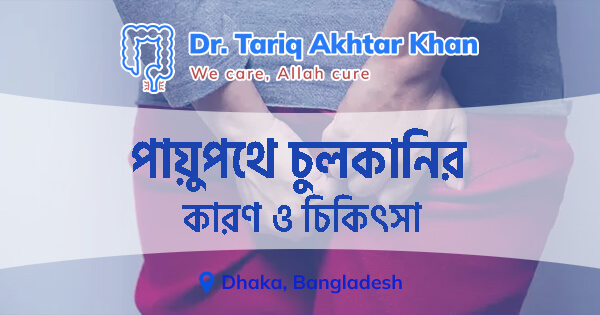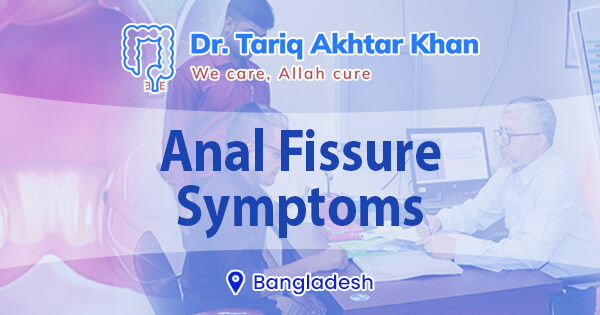How to cure fissures permanently in Bangladesh? Best ways to heal fissures
Anal fissures can cause significant discomfort and pain, but permanent relief is possible through a combination of medical treatments, lifestyle changes, and natural remedies. This guide offers expert tips and proven treatments on how to cure fissures permanently without surgery in Bangladesh, helping you overcome them and prevent a recurrence. Find medical options, natural remedies, and essential lifestyle modifications that promote healing and ensure lasting relief from anal fissures.
If you're experiencing persistent or chronic anal fissures, professional treatment may be necessary. Contact Dr. Tariq Akhtar Khan in Dhaka, Bangladesh, today for a personalized consultation and to take the first step towards permanent relief.
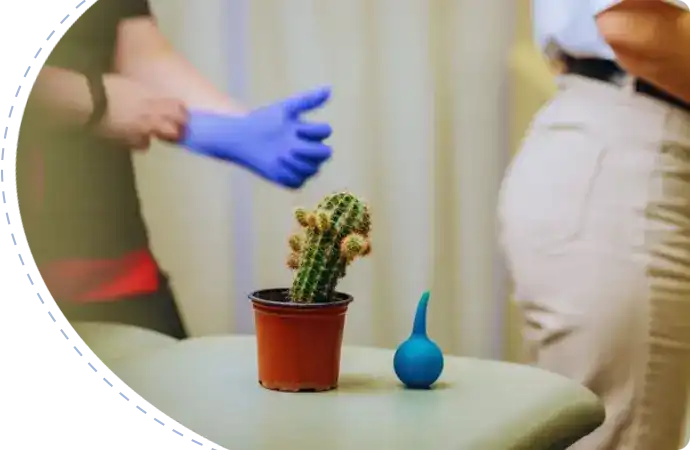
What are fissures? Causes and risk factors
Anal fissures are small tears in the lining of the anus, often caused by hard bowel movements or prolonged constipation. Common symptoms include sharp pain during bowel movements, itching, and sometimes bleeding. If left untreated, fissures can become chronic, leading to long-term discomfort and the need for medical intervention.
Common causes and risk factors:
- Straining during bowel movements
- Chronic constipation or diarrhea
- Childbirth
- Anal sex
- Crohn's disease
Untreated fissures can become more serious, making early treatment essential for long-term relief.
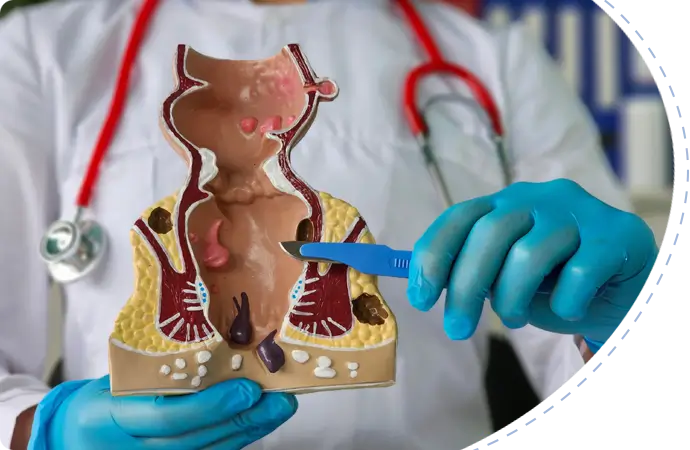
Conventional treatments to cure fissures
While surgery is effective, less invasive treatments like ointments and Botox are often preferred due to fewer risks and quicker recovery times. Medical treatments are typically the first choice for treating anal fissures. Doctors may suggest one or a combination of the following options:
- Topical ointments: Medications like nitroglycerin or nifedipine can help increase blood flow and promote healing.
- Botox injections: Botox relaxes the anal sphincter, reducing spasms and allowing the fissure to heal.
- Muscle relaxants: These can reduce pressure on the anal canal and encourage healing.
- Surgery (Lateral Internal Sphincterotomy): In severe cases, a small incision is made in the anal sphincter to reduce tension and help heal chronic fissures.
Lifestyle changes to cure fissures permanently
Diet and lifestyle changes are crucial to treating and preventing fissures. These adjustments create optimal conditions for healing while minimizing the risk of recurrence. Incorporating the following habits can promote recovery and help prevent fissures from returning:
- Follow a high-fiber diet to soften stools
- Drink plenty of water to stay hydrated
- Avoid spicy and hard-to-digest foods
- Exercise regularly to support bowel movements
- Practice proper bowel habits to avoid straining
- Take short breaks to avoid prolonged sitting
- Use stool softeners or fiber supplements as needed
- Maintain a balanced diet to promote digestive health
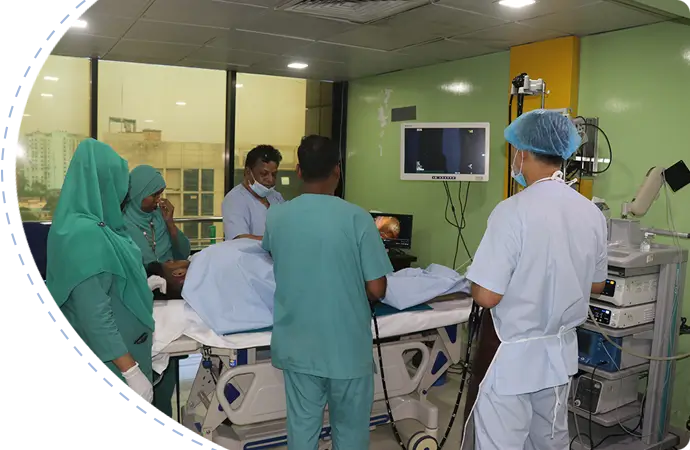
Natural remedies for long-term relief
These remedies aren’t a replacement for medical care, but they can help speed up healing and offer lasting relief. If you're looking for home remedies, several natural options can ease discomfort and support the healing process, such as:
- Warm sitz baths: Sitting in warm water for 10–15 minutes a few times a day can relax the anal muscles and promote healing.
- Aloe vera and coconut oil: Both have soothing and anti-inflammatory properties that can help heal fissures when applied topically.
- Epsom salt soaks: Adding Epsom salt to warm baths can further relax muscles and reduce pain.
- Stool softeners or fiber supplements: These ensure regular bowel movements without straining, which is essential for preventing further damage.
Tips to prevent fissures from recurring
Preventing fissures from returning involves adopting healthy habits that maintain soft stools and reduce digestive stress. By maintaining these habits, the chances of fissure recurrence are significantly reduced. Key tips include:
- Keep stools soft by eating high-fiber foods
- Avoid constipation with a balanced diet and hydration
- Exercise regularly to support digestion
- Stay hydrated to ensure smooth bowel movements
- Clean the anal area gently after bowel movements
- Don’t delay passing bowel movements to avoid hard stools
- Avoid sitting for long periods to reduce pressure
- Use heat (sitz baths) and cold treatments for relief
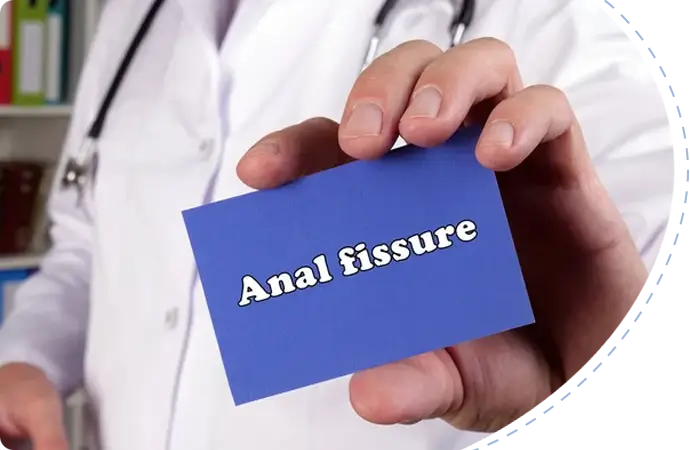
When to consult a doctor?
While many fissures heal with home remedies and lifestyle changes, some may require medical intervention. It's important to consult a doctor if:
- Symptoms persist for more than six weeks
- Pain increases or bleeding becomes severe
- Home treatments do not result in improvement
Chronic fissures often require professional medical treatment, and consulting a healthcare provider like Dr. Tariq Akhtar Khan can help develop a personalized treatment plan for lasting relief. Call us now at +880 1985 860690 or book an appointment today!
FAQs about fissures and their treatment
Most fissures heal within 4 to 6 weeks with proper care, but chronic cases may take longer or require medical intervention.
Yes, many fissures can heal with lifestyle changes, medications, and natural remedies. Surgery is usually a last resort for chronic or severe cases.
Fissures can return if preventive measures are not taken. Maintaining a fiber-rich diet, staying hydrated, and avoiding straining during bowel movements can reduce the risk of recurrence.
The fastest way to heal a fissure is to maintain soft stools through a high-fiber diet, adequate hydration, and using topical treatments. Warm sitz baths can also help relax the muscles.
Yes, fissures can be completely cured with appropriate treatment, including medical options and lifestyle changes. A healthcare professional can help create a personalized plan for lasting relief.
To manage fissures at home, consider the following steps:
- Increase fiber to soften stools
- Stay hydrated with plenty of water
- Take warm sitz baths for relaxation
- Use aloe vera or coconut oil for relief
- Avoid straining during bowel movements
- Consult a doctor if symptoms persist

